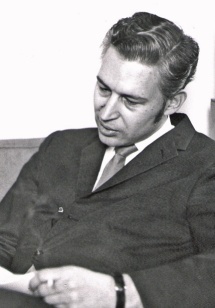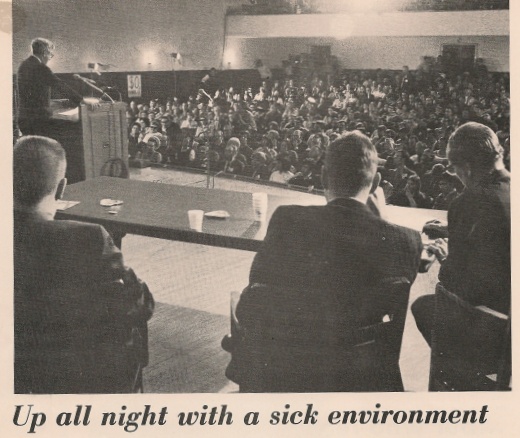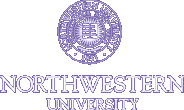DR. WESLEY PIPES
Then:
Northwestern University, Professor of Civil Engineering, with a focus in Environmental Engineering; NSBE faculty advisor from it's inception to 1974.

Now:
Retired, served as Professor Emeritus at Drexel University from 1998 to 2003.
Professor Wesley Pipes describes the beginnings of Northwestern Students for a Better Environment, Project Survival and NSBE's advocacy work during his tenure as advisor:
"The very beginning of Northwestern Students for a Better Environment was one afternoon in the summer of 1969 when Casey Jason walked into my office in the Technological Institute Building. He was an undergraduate pre-med student and I was a Professor of Civil Engineering specializing in Environmental Engineering, particularly wastewater treatment and water pollution. Student activism (civil rights, anti-war, etc.) was a big thing at that time and Casey told me that there were students who wanted to form a group of environmental activists. We discussed a number of issues that students could work on and settled initially on one to be taken up at an open meeting of the Trustees of the Metropolitan Sanitary District of Greater Chicago (MSD) in a couple of weeks.
In the spring of 1969 I had worked (as a consultant) on a MSD-Industry Committee to establish parameters for what would now be called a "Pretreatment Ordinance." The parameters defined concentrations of potentially deleterious waste materials which could be discharged to MSD sewers by various industries. The objectives of the ordinance were to avoid the discharge industrial wastewaters that could interfere with operation of MSD facilities and to prevent pollution from the effluents discharged by MSD treatment plants. Most of the parameters were toxic materials such as mercury, zinc, chromium, copper, etc. The one parameter which caused the committee the most problems was "fats, oils and grease" (f.o.g. or hexane extractables) which includes not only materials of animal and plant origin but also hydrocarbons such as lubricating oils. The MSD-Industry Committee reached agreement on all the parameters including a limit of 100 mg/l for f.o.g. The agreement included many big industries that used large amounts of f.o.g. such as soap and detergent manufacturers and cosmetics companies. The ordinance had to be approved by the MSD Trustees. Later in the summer, a smaller industrial group, the Renderers Association, was exerting political pressure to get the Trustees to increase the 100 mg/l limits for f.o.g. to a higher value. We had data showing that the reduction in f.o.g. in the MSD treatment plants was only 85 % and increasing the limit above 100 mg/l could result in water pollution.
Casey arranged for me to discuss this situation with a number of students including Jim Reisa, a graduate student in Biology and Warren Muir, a graduate student in Chemistry. The students attended the meeting of the MSD Trustees and very successfully presented the arguments for keeping the 100 mg/l limits for f.o.g. The students' success with the MSD Trustees received a significant amount of newspaper coverage. This occurred shortly before the start of the Fall Quarter of the 1969-70 academic year and attracted the attention of a large number of students who wanted to join with the environmental movement.
The students selected the name, "Northwestern Students for a Better Environment." Casey Jason was elected president. Many undergraduate and graduate students in Biology, Chemistry and Environmental Engineering were very active in N.S.B.E. projects. I was the faculty advisor for N.S.B.E. as long as I was at Northwestern but there were a number of other faculty who were as much or more involved as I was.
During the late 1960's, student activist groups (particularly anti-war groups) liked to hold "teach-ins" which were all night sessions where faculty and students learned about and discussed issues related to their area of activism. We decided to call Project Survival a "teach-out" to emphasize the idea that we wanted to bring members of the non-university community into the environmental movement.

On January 23. 1970, Project Survival was held in the Technological Institute Building. There was a closed circuit television system between the main auditorium where the speeches were presented, and two large lecture halls all of which were packed. There was also an audio system throughout the building. Many classrooms and the hallways were also filled with people. Of the thousands who participated in Project Survival there seemed to be about the same numbers of non-students as students present. Many non-students continued to work with N.S.B.E.
After Project Survival, N.S.B.E. presented proposals and testimony before the Illinois Pollution Control Board and also testified about an environmental rights article at the Illinois State Constitutional Convention. This was in addition to educational activities and discussions with municipalities and industries about water pollution, air pollution and solid waste disposal problems."
Beyond Project Survival:
Prof. Pipes continued on the faculty at Northwestern and as the faculty advisor for NSBE through December 1974. The following January he took a position as the Betz Chair Professor of Ecology in the Department of Biological Sciences at Drexel University in Philadelphia. Before switching to environmental engineering, his previous degrees were in biological science. His research was concerned with the microbiology of water and wastewater. While at Drexel, Prof. Pipes was a member of the Environmental Studies Institute and split his teaching between Biological Sciences and the Institute. In 1983, he resigned the Chair Professorship in the Department of Biological Sciences and became Head of the Department of Civil Engineering.
Prof. Pipes' research has been funded by grants from NSF and EPA; including work on sampling water distribution systems for microbiological contamination, particularly Escherichia coli and related bacteria. He served on several EPA advisory groups; the 1989 revision of the coliform sampling regulation for water distribution systems was based partially on his research.
After retiring from Drexel in 1998, Prof. Pipes served as Professor Emeritus, continuing to teach courses each year until 2003.
